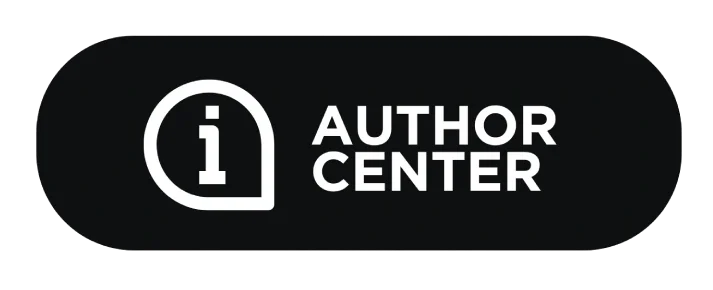In line with its commitment to fostering spaces for communicative rationality, TH+In, the academic social network, presents its 2025/26 Research Thematic Agenda as a guiding framework that promotes critical exchange, interdisciplinary cooperation, and the collective construction of knowledge. In a context marked by profound and accelerated transformations, this agenda seeks to engage the global academic community in research processes that not only diagnose the dilemmas of our time but also contribute to their resolution through the exercise of shared critical rationality.
The normative orientation of this proposal is grounded in the conviction that science and the production of knowledge cannot be separated from the historical, social, and cultural conditions that shape their very possibility. TH+In thus embraces a commitment to critical, reflective, and socially engaged research, capable of articulating the Social Sciences, Humanities, and Applied Sciences around structurally significant problems. This articulation is conceived not through disciplinary fragmentation, but through an integrative approach that fosters dialogue among knowledge systems, rational deliberation, and transformative action.
The 2025 Agenda serves as a tool for the reflective orientation of research practices, emphasizing the interdependence of social, political, economic, technological, and environmental spheres. Within this framework, knowledge production is understood as a situated practice, whose meaning is fulfilled insofar as it contributes to strengthening deliberative democracy, social equity, and global sustainability.
The thematic areas that structure this agenda are outlined below—not as a closure of debate, but as an open invitation for expansion through theoretically grounded and methodologically rigorous contributions.
Suggested Topics 2025/26
1. Social and Cultural Transformations: In a global context characterized by rapid social transformations and increasing diversity in values, identities, and forms of collective organization, this research line seeks to understand processes of cultural change as expressions of contested normative tensions. The analysis of collective identities and individual subjectivities is conceived as part of an intersubjective process shaped by struggles for recognition, conflicts between tradition and change, and new dynamics of socialization mediated by digital technologies. Priority is given to studies that examine the conditions under which educational institutions, public spaces, and virtual environments can serve as platforms for symbolic inclusion, intercultural deliberation, and the reconstruction of social bonds in times of fragmentation and reconfiguration of the communal fabric.
2. Technological Innovation and Society: Emerging technologies not only introduce new tools but also shape normative structures that redefine the coordinates of social action. This line proposes a critical analysis of how technological innovation—particularly artificial intelligence, algorithmic automation, and digital infrastructure—affects the redistribution of power, the transformation of communicative capacities, and the redefinition of citizenship. From the perspective of communicative rationality, it seeks to clarify the conditions under which these technologies can be integrated into legitimate institutional frameworks that ensure procedural justice, transparency, and equitable access. Critical reflection on the normative foundations of digital justice, privacy, and autonomy is of central importance here.
3. Sustainability and Climate Change: The ecological crisis profoundly challenges prevailing ways of thinking about development and progress, demanding an ethical and political reorientation of the relationship between society and nature. This research axis calls for studies aimed at building a practical rationality that articulates individual and collective interests through long-term deliberative processes. Energy transitions, circular economy models, and environmental policies must be conceived not only in terms of technical feasibility but also based on criteria of intergenerational justice, informed public participation, and recognition of diverse knowledges. Sustainability is thus invited to be considered as a normative project requiring a collective will to preserve the conditions of life for future generations.
4. Governance, Public Policy, and Global Justice: The crisis of legitimacy in traditional forms of governance demands a critical review of the institutions tasked with mediating between administrative power and citizen will. This area promotes research on the conditions for the possibility of a transnational public sphere, where political deliberation processes can be articulated around shared normative principles and inclusive structures. Reflection on the state extends beyond its legal or administrative dimensions to its capacity to represent diverse interests and structure decision-making processes that include excluded or underrepresented actors. Studies that examine global justice from a discursive perspective, considering migration, human mobility, and international cooperation as pressing normative challenges, are particularly valued.
5. Economy, Finance, and Social Innovation: Traditionally conceived from a functionalist logic, the economy must be rearticulated from a normative perspective that ties it to the realization of ethically justifiable ends. This research line examines emerging forms of economic organization that prioritize social cohesion, inclusion, and collective well-being over private profit. Priority is given to studies exploring the potential of sustainable finance, social entrepreneurship, and collaborative models as forms of innovative economies that promote inclusion, social cohesion, and collective well-being in production, consumption, and distribution. The central question guiding this line is how to build more equitable and sustainable economic systems without compromising their functionality, integrating innovation and social justice.
6. Applied Sciences for Social Transformation: This axis encompasses research that, from a pragmatic and normatively conscious orientation, contributes to the transformation of social structures through technologically informed and ethically guided interventions. The TH+In approach demands that applied sciences go beyond solving technical problems, articulating their developments in dialogue with social needs and deliberatively agreed-upon values. Areas such as public health, education, urban planning, and space exploration are seen as spaces where scientific rationality must be complemented by social validation procedures to ensure legitimacy and relevance. Research that collaborates with communities, incorporates situated knowledge, and recognizes the agency of traditionally marginalized actors is encouraged.
7. Theory, Epistemology, and Critical Methodology: This line invites reflection on the normative conditions of knowledge production in the 21st century, recognizing that all theory implies a form of relationship with the social world. Research that questions the epistemological assumptions of modern science, proposes alternative frameworks for knowledge validation, and develops methodologies incorporating dialogue, participation, and inclusivity is valued. In line with the notion of a communicatively rational science, the transformative potential of practices such as open science, shared data, and knowledge co-production is emphasized, understood as institutional expressions of a scientific community guided by principles of equity, transparency, and critical deliberation.
With the 2025 Thematic Agenda, TH+In reaffirms its commitment to serving as a space that enables not only the circulation of knowledge, but also its critical problematization within a framework of argumentative reciprocity. We invite researchers and scholars from around the world to contribute proposals that enrich these thematic lines, expand the horizon of what is thinkable, and strengthen the fabric of a plural academic community.
Selected papers will be published in the Papers section of our platform, in ongoing dialogue with the demands and urgencies of our societies.
We thank all contributors in advance and renew our commitment to a science that is socially relevant, communicatively oriented, and ethically grounded.




